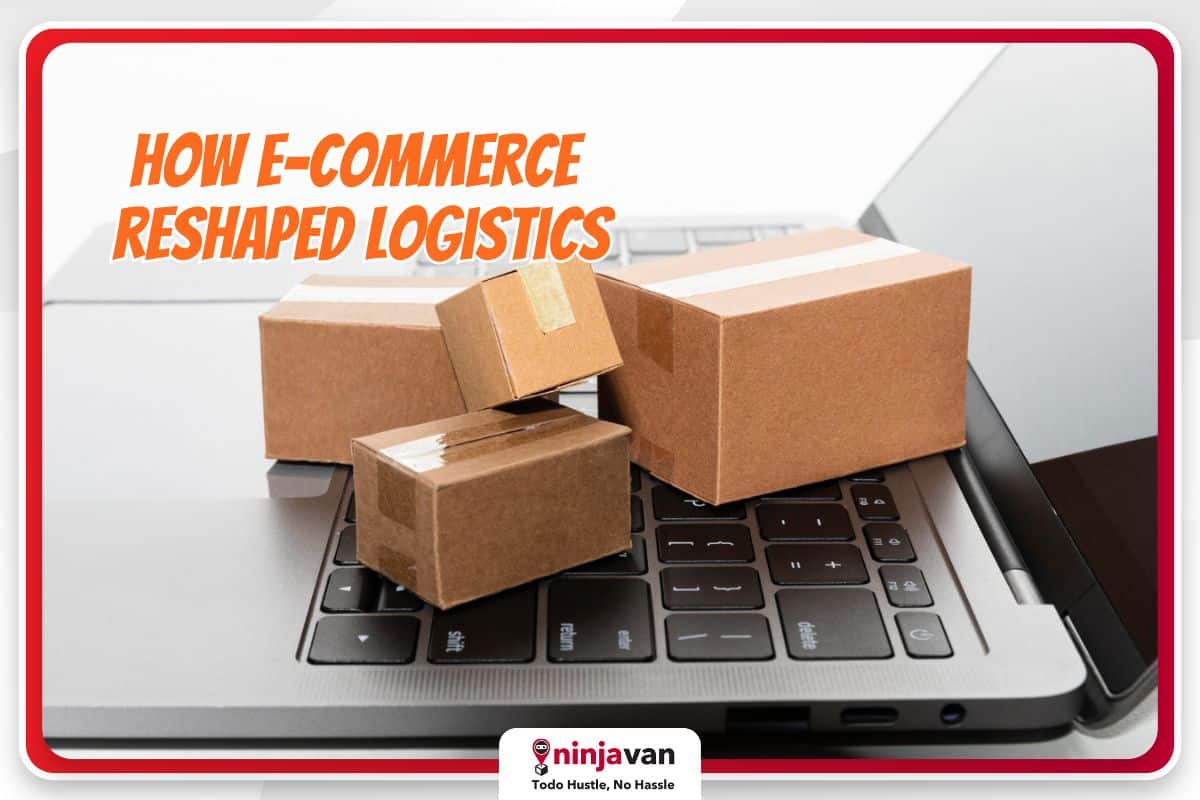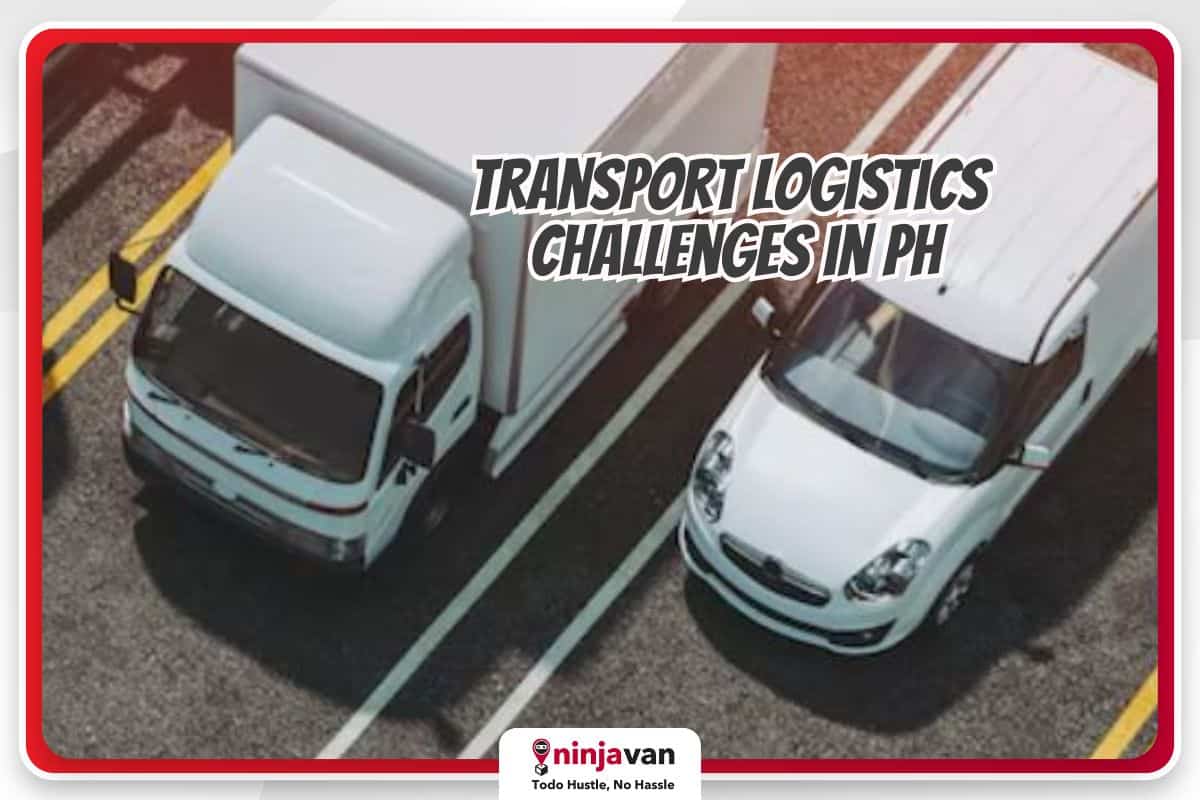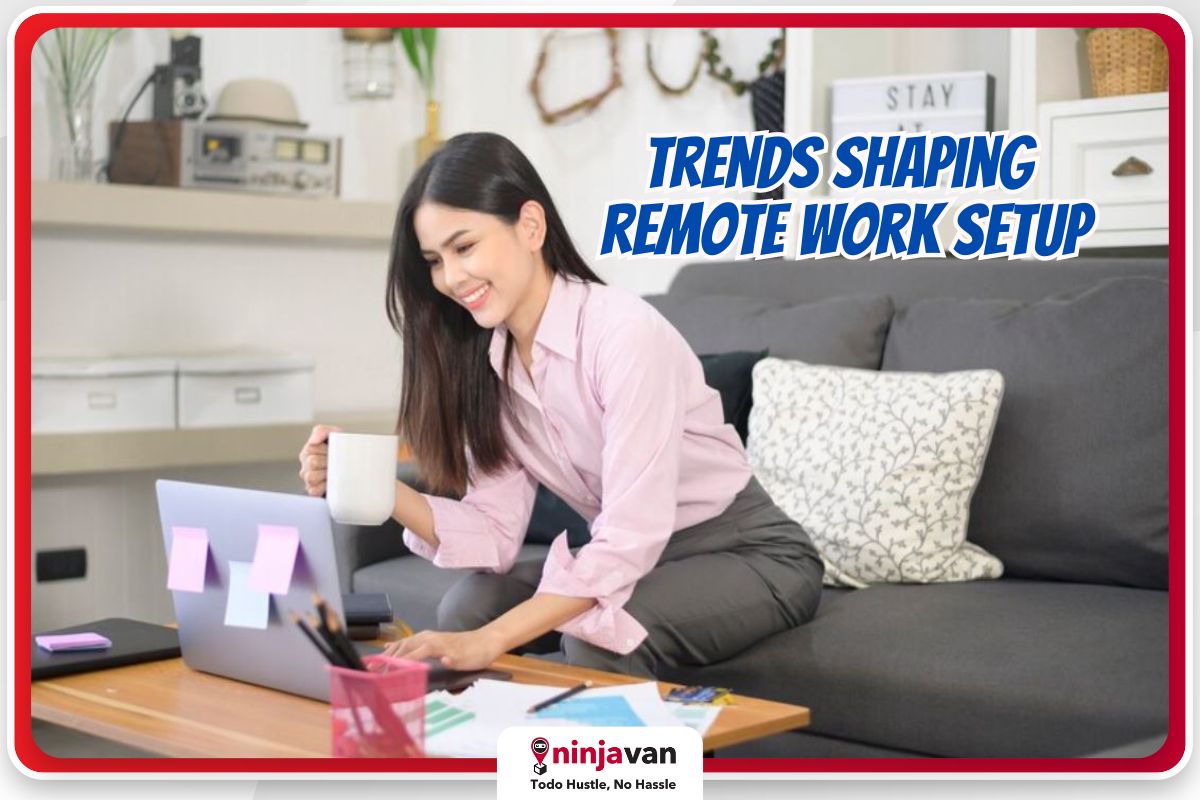Ecommerce logistics has transformed the world of shopping, making it faster and more enjoyable for customers. With new innovations constantly emerging, we can look forward to even more improvements in the future.
But it’s not just shoppers who benefit – businesses are also reaping the rewards. These trends are enabling them to operate more efficiently and provide top-notch service to their customers.
It’s an exciting time for everyone in the ecommerce industry, as these advancements are streamlining processes and enhancing the overall customer experience.
Let’s explore how the evolution of ecommerce has reshaped the logistics landscape, simplifying and innovating the process of getting products from warehouses to customers.
Also read: How 3PLs Help Your Ecommerce Business Grow
What is ecommerce logistics?
Ecommerce logistics is essentially the engine that drives your online store, handling all the intricate steps needed to deliver your product from your warehouse or store to your customer’s front door.
As ecommerce has gained prominence, logistics has undergone significant transformations as well.
8 Ecommerce trends that changed logistics
Let’s take a closer look at the world of ecommerce logistics and explore the trends that have brought about remarkable changes in the industry.
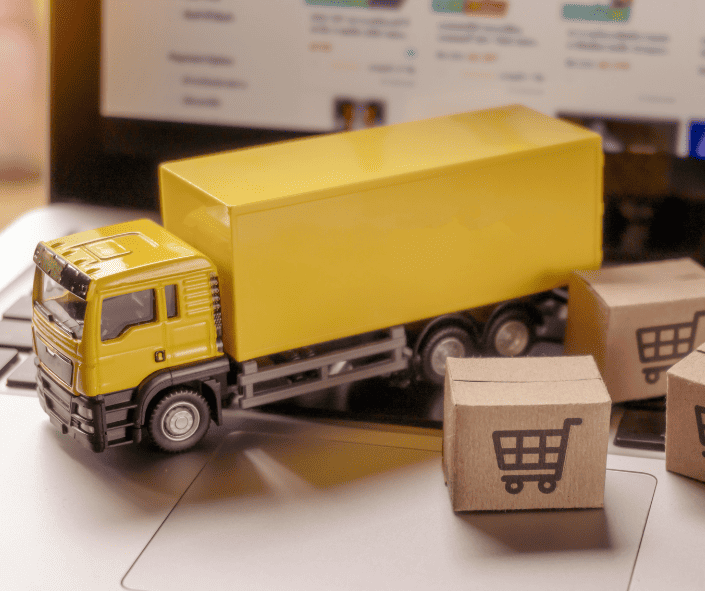
1. Real-time tracking
Imagine having the visibility to pinpoint your shipment’s location at any given moment. Real-time tracking has redefined customer satisfaction. It’s not merely about delivering goods but also about providing peace of mind to your customers.
Knowing where their package is in real-time empowers them and enhances their overall shopping experience.
#NinjaTip: With Ninja Van, you’ll have full visibility of your shipment’s status through our advanced and easy to use Ninja Dashboard. Get real-time tracking of your parcels anytime, anywhere!
2. Automated warehousing and fulfillment
Imagine a warehouse where technology and artificial intelligence work seamlessly alongside human employees to fulfill orders. Companies like Amazon have turned this vision into reality.
Their automated warehouses use robots to retrieve products, pack them efficiently and prepare them for shipping. This level of automation reduces errors, minimizes order processing times, and ensures that packages are on their way to customers more quickly.
3. Faster delivery times
In today’s era of instant gratification, customers expect their purchases to arrive promptly. Logistics companies have embraced the need for speed by introducing express deliveries and overnight deliveries for both local and international shipping.
This trend has pushed the logistics industry to become more agile and innovative, making fast delivery a critical success factor in the world of ecommerce.
4. Customized delivery choices
Customers love options. They now hold the power to choose delivery times and locations that align with their schedules. The concept of flexible delivery has become a standard expectation in ecommerce logistics. This trend places the customer’s convenience at the forefront.

of shipping their orders.
Picture this: You’re a busy professional, and you’ve just placed an online order. With customized delivery, you can pick a time that works for you, whether it’s before work or in the evening. You can also decide where your package should go – your doorstep, workplace or a nearby pickup point.
This flexibility makes your online shopping experience more convenient and tailored to your preferences.
5. Data and analytics-driven reporting
Data reigns supreme in ecommerce logistics. Understanding customer behavior through data analytics enables businesses to fine-tune their logistics processes.
From forecasting demand to managing inventory, data-driven decisions are shaping the future of logistics, ensuring smoother operations and customer satisfaction.
6. E-commerce API Integration
The integration of ecommerce platforms with logistics providers through Application Programming Interfaces (APIs) has streamlined the logistical process.
Shopify, for example, offers seamless integration with multiple couriers, allowing businesses to easily generate shipping labels, track shipments, and provide accurate shipping rates to customers.
This synchronization ensures a harmonious workflow from order processing to shipping.
#NinjaTip: Ninja Van’s ecommerce API integration works perfectly with top ecommerce platforms, like Shopify, Pancake, WooCommerce, Anchanto, and more. Learn more about it HERE.
7. Optimized payment processes
Efficient and secure payment processes have become standard in ecommerce logistics. Payment gateways and e-wallets facilitate hassle-free transactions for both businesses and customers.
This optimization simplifies the checkout process and ensures that payments are processed smoothly, contributing to an overall enjoyable shopping experience.
8. Transparency throughout the logistics process
Transparency is a crucial trend in ecommerce logistics. It ensures that every step of the logistics journey, from the warehouse or store to delivery, is clear to both businesses and customers. This transparency is built on trust, as customers want to know the status of their orders.

For example, Ninja Van, a leading ecommerce logistics provider in the Philippines, sends real-time notification to customers so they can track their packages from pickup to delivery. This transparency builds trust and enhances their shopping experience.
Navigating tomorrow: upcoming ecommerce logistics trends
Looking ahead, ecommerce logistics is poised for further innovation that consumers and businesses should look out for. These emerging trends include:
- Eco-Friendly Practices: Sustainability will be a driving force, with logistics providers adopting greener solutions for a reduced environmental footprint.
- Advanced AI: Artificial intelligence will enhance route optimization and inventory management, reducing costs and delivery times.
- Blockchain Integration: Improved security and transparency in supply chains will benefit both businesses and customers.
- Hyper-Personalization: Logistics will tailor delivery experiences to individual customer preferences, enhancing satisfaction.
- Drone Deliveries: Drone technology will play a role in making ultra-fast deliveries, especially in urban areas.

With these upcoming shipping and delivery logistics trends, the future of ecommerce logistics promises further efficiency, sustainability and enhanced customer experiences.
Ninja Van’s got you covered
The ecommerce logistics landscape is constantly evolving, and staying ahead of these trends is crucial for your business.
Ninja Van has always embraced technology in our logistics processes to give shippers hassle-free deliveries. Our end-to-end logistics solution embodies these innovative trends because we understand the importance of keeping up with changes to help your business grow.
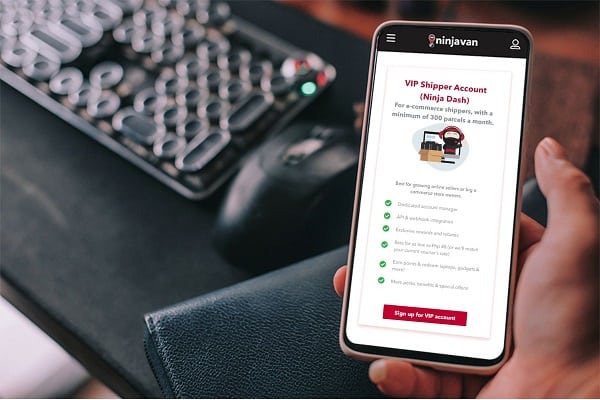
hassle-free deliveries.
More than just fast deliveries, you can enjoy cost-efficient services for:
- Fulfillment and warehousing
- Inventory or restock transport
- Sourcing and importing from China to PH
- Cross-border ecommerce
So, are you ready to take your logistics game to the next level? Partner with Ninja Van for more ecommerce success and to scale your business faster!
Become a Ninja Van partner today!

More logistics tips to help your growing business:
6 Signs You Need to Outsource Your Order Fulfillment
Shipping from China to the Philippines: An Easy Guide
Ninja Van’s Exciting Shipper Rewards Program

